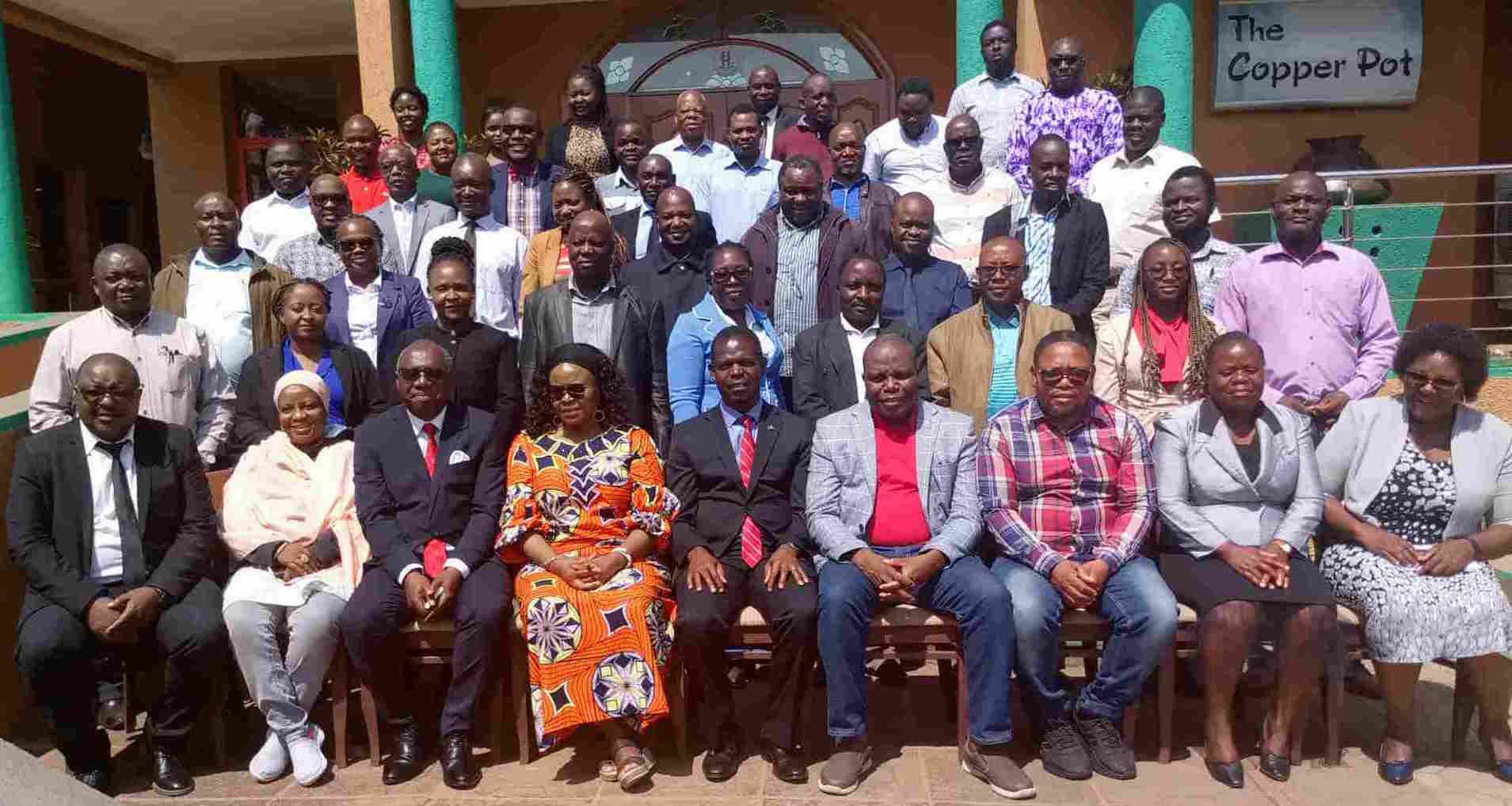The workshop on validation of Malawi’s National Communication Strategy on Genome Editing and Genome Editing Modules for Africa has roared to life in the Southern African Country.
The African Union Development Agency-NEPAD (AUDA-NEPAD) is holding the Expert Group Meeting in Malawi to review genome editing (GEd) training modules that were developed by African scientists, regulators and research and development experts, working with media.
Dr. Yusuf M. Mkungula, Malawi’s Principal Secretary for Natural Resources and Climate Change, during the opening ceremony for the validation of training modules on genome editing in Lilongwe today, revealed that eight countries (Burkina Faso, Ethiopia, Ghana, Kenya, Nigeria, Mozambique, and Zimbabwe) are participating in the Genome Editing Project.
“Let me thank the African Union Development Agency (AUDA/NEPAD) for spearheading this initiative aimed at building stakeholders’ capacity on genome editing, a technology that has the potential to improve agricultural productivity and contribute to the attainment of the second sustainable development goal on zero hunger.
“You may agree with me that Agriculture plays α crucial role in Africa’s socioeconomic development. Agriculture is the primary source of food for the majority of Africans. By investing in agricultural development, Africa can also ensure food security for its growing population and reduce dependence on food imports. With climate change impacting Africa more severely, sustainable agriculture practices can enhance the continent’s resilience to extreme weather events, water scarcity, and other climate-related challenges,” Dr. Mukungula said.
His counterpart, Prof Emmanuel Kaunda, Vice Chancellor of Lilongwe University of Agriculture and Natural Resources revealed that embracing agricultural technology and innovation can lead to significant improvements in productivity, efficiency, and sustainability.
“Therefore, investing in research and development can drive progress in the sector. Genome editing is one such technology that has the potential to contribute significantly to agricultural productivity. This initiative is, therefore, an opportunity for Africa to enhance its understanding of genome editing technology and build its capacity to be able to develop nationally driven products that meet national agricultural productivity needs,” he said.
He added that the meeting has brought together Malawi’s Ministry of Agriculture, a policyholder for all matters related to agriculture productivity; the University of Agriculture and Natural Resources, a Capacity Building Institution in agricultural technologies; and the Ministry of Natural Resources and Climate Change as a regulator of all technologies.
“Gone are the times when sectors used to work in silos, for meaningful development working together is a must and no longer an option.
“Secondly, this initiative has been so inclusive in development of a national communication strategy. All relevant stakeholders, which among others include government departments, the private sector, journalists, and the faith community have been taken on board. A better understanding of the technology is very important as it determines the rate of adoption. Coming from the academia, in particular, Lilongwe University of Agriculture and Natural resources which teaches among others biotechnology and innovations in the agriculture sector, we are always eager to see that the knowledge imparted on our students are being applied and contributing to the national food security. I am proud today that I can speak with confident that most of the researchers in the country passed through LUANAR and the sustainability of agricultural technologies is highly dependent on agricultural institutions.”
Mrs. Florence Nazare, the Head of AUDA-NEPAD’s Centres of Excellence Management and Coordination, paid tribute to Malawi for hosting the workshop.
She said the exercise will review the zero drafts of GEd training modules that were designed for different stakeholder groups and tailor-made to the needs of the Continent.
“The modules are aimed at providing a standardised and systematic approach when training different stakeholder groups as part of the national communication and advocacy exercises on GEd. This will guide in-country teams by promoting a common understanding of the GEd tools and related benefits towards an enhanced uptake.
“There are also national lead agencies of the initiative, scientists, policy makers, research and development experts, as well as private sector representatives from the 8 pilot countries that were involved in producing the zero drafts. The review exercise will support the finalisation of the modules through a systematic evaluation of the content, structure, and delivery methods. The approach aims to ensure ownership, impact and sustainability of the national communication and advocacy efforts focusing on the competitive advantage of biotechnology and genome editing tools to help transform agriculture on the Continent,” Mrs Nazare said.
She added that Africa has been a consumer of products from outside the continent hence the need to share insights on how it can be agile in harnessing its own development considering societal needs, research and development, as well as science.






